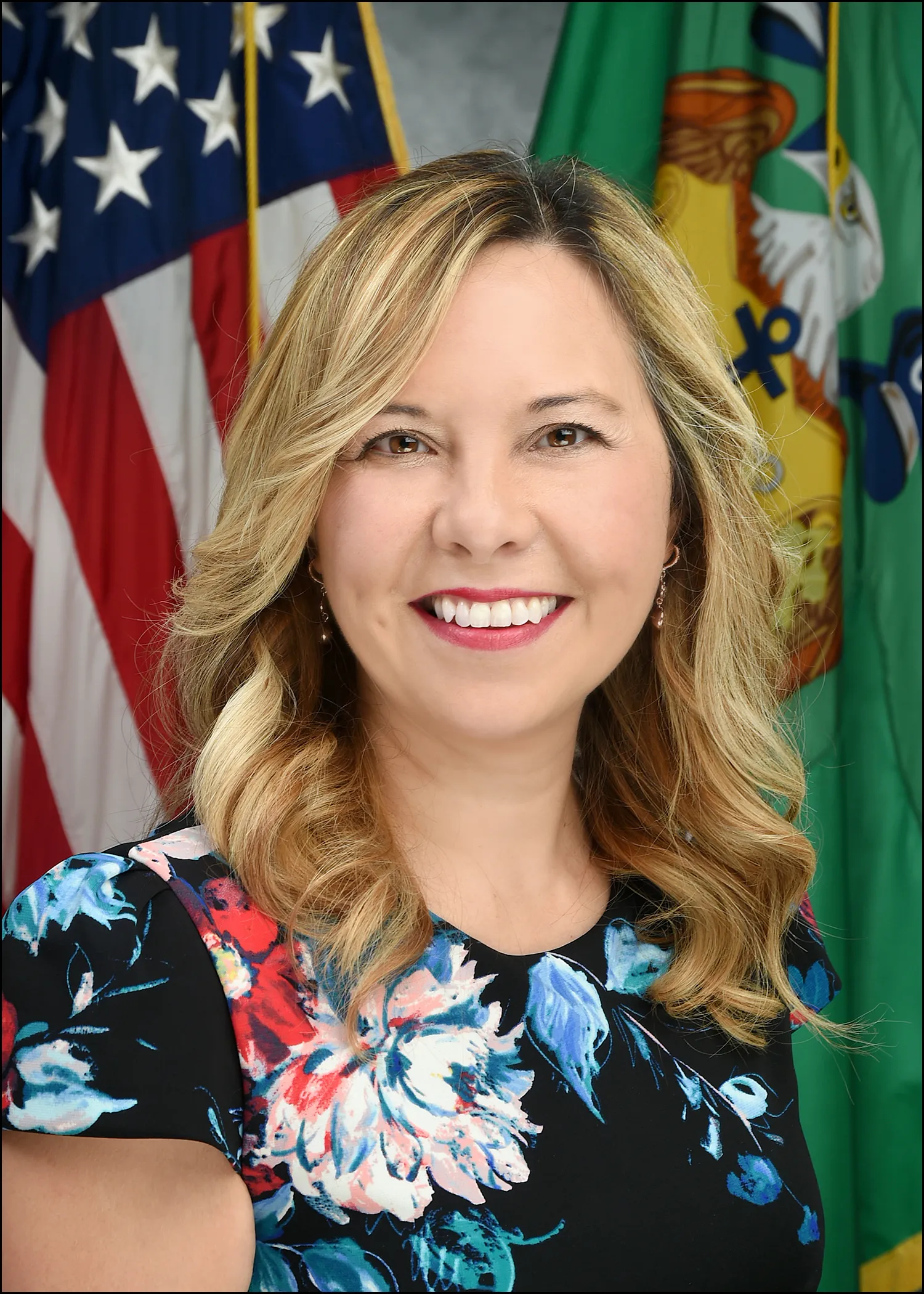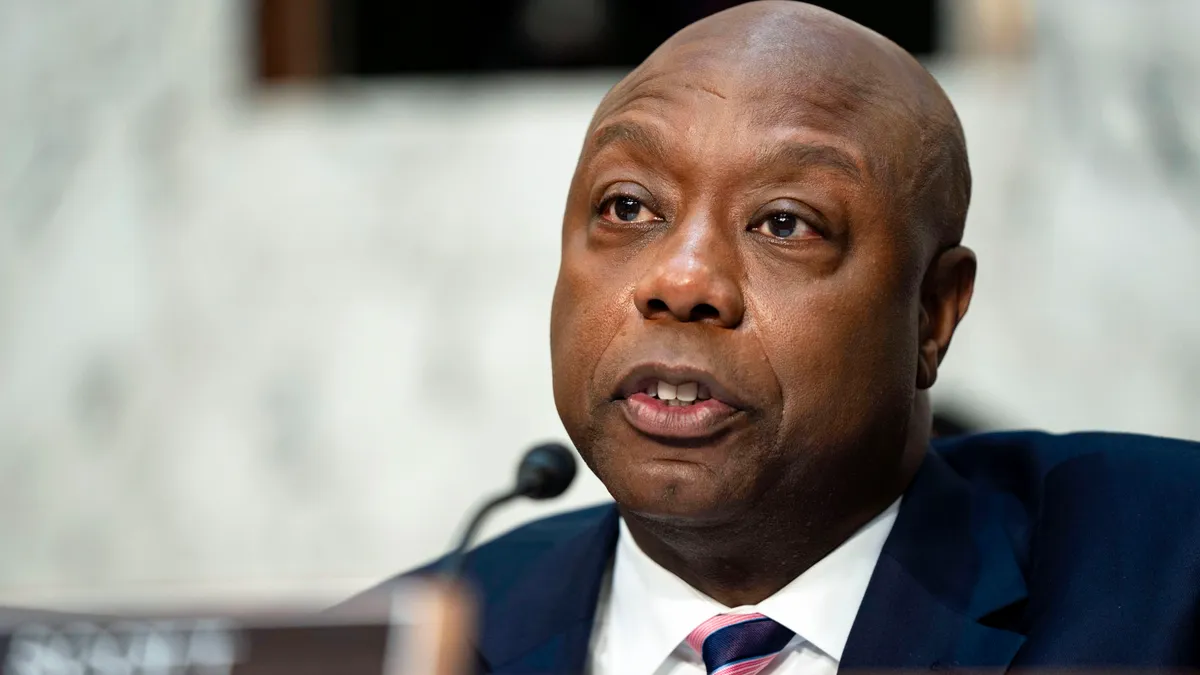Dive Brief:
- Testifying at a two-hour hearing Thursday before the Senate Banking Committee, Christy Goldsmith Romero pledged to “prioritize a complete overhaul” of the Federal Deposit Insurance Corp.’s workplace culture if confirmed as its new chair.
- “It must not continue,” Goldsmith Romero said of reports that the FDIC tolerated an environment rife with sexual harassment, “and I will bring accountability” through investigations and disciplinary actions.
- The conduct referred to in the recent Cleary Gottlieb report on the FDIC’s workplace culture “would warrant multiple removals,” Goldsmith Romero told senators, although she noted addressing issues at individual field offices is a larger issue that would likely take more time.
Dive Insight:
Goldsmith Romero, nominated by President Joe Biden in June to replace Martin Gruenberg as FDIC chair, has been a commissioner with the Commodity Futures Trading Commission since March 2022.
Prior to that, she spent a dozen years at the Treasury Department, including leading the Office of the Special Inspector General for the Troubled Asset Relief Program. During her 11 years at the helm of SIGTARP, Goldsmith Romero oversaw a crackdown on Wall Street bankers in the aftermath of the 2008 financial crisis.
Goldsmith Romero, who has twice received unanimous Senate confirmation for past roles, has also held roles at the Securities and Exchange Commission.
SIGTARP, “known for its ability to uncover hidden fraud in banks,” brought civil actions against large banks and criminal convictions of some 400 people, including 95 bankers and 90 bank borrowers, often related to failed banks, she told senators Thursday. The agency aimed “to restore confidence in the banking system” through accountability and transparency, she noted.

During her time leading SIGTARP, some workplace complaints were filed, senators noted during the hearing. Sen. Tim Scott, R-SC, referred to “a number of whistleblowers who have come forward and talked about [Goldsmith Romero’s] management approach,” and suggested workplace issues seen at the FDIC were also challenges at SIGTARP under her leadership.
Goldsmith Romero emphatically disagreed, noting there was only one finding against the agency early in her tenure leading SIGTARP, which was quickly addressed.
“There was nothing like what was in the Cleary report at the FDIC,” she asserted. She also argued that the instance demonstrated that SIGTARP employees felt safe following existing reporting processes, which hasn’t been the case at the FDIC.
Senators sought to understand Goldsmith Romero’s stance on the handling of industry issues such as bank failures as well as how she’d effect needed change at the regulatory agency. When it comes to turning around the FDIC’s culture, “you’re either going to do it or you’re not,” said Sen. John Kennedy, R-LA, told Goldsmith Romero. But “we are going to be watching.”
Gruenberg, who began his current five-year term as FDIC chair in January 2023, said in May he would resign once the Senate confirmed his successor. Allegations of the FDIC’s toxic culture and ongoing misconduct have nagged the agency for years but intensified in November, after The Wall Street Journal published an exposé with interviews from dozens of employees.
Law firm Cleary Gottlieb released an independent audit report in May that detailed an environment Goldsmith Romero on Thursday called “disturbing.” The report led a number of lawmakers – mostly Republicans, but also key Democrats such as Sen. Sherrod Brown of Ohio – to call for Gruenberg’s resignation.
Goldsmith Romero laid out her initial plans to address the FDIC’s long-standing issues, including by heralding those doing the right thing and raising standards of professionalism and respect as she did at SIGTARP. “Cultures can change,” she said. “You start with the tone at the top and what’s acceptable, and you send clear messages as to what’s acceptable and what’s not.”
Democrats have sought to act quickly on Goldsmith Romero’s confirmation in light of November’s presidential election, since securing Democratic leadership for the FDIC could ensure the agency ushers through contentious reforms such as a recent capital requirements proposal.
Sen. Mike Rounds, R-SD, asked Goldsmith Romero whether she supports reissuing a proposal requiring big banks to hold more capital for another comment period. Federal Reserve Chair Jerome Powell indicated to lawmakers this week the central bank’s board does. Powell noted that leadership of the FDIC and the Office of the Comptroller of the Currency don’t yet agree with the Fed on that matter, but he’s hopeful they’ll find a path forward.
“I haven’t seen the changes,” Goldsmith Romero told Rounds. “I’m certainly inclined to have a reproposal whenever there are this many comments, and then there’s going to be broad, material changes. That’s my inclination.”
At the CFTC, Goldsmith Romero has led the charge to hit repeat offenders with added penalties and pursue individual admissions of guilt, Bloomberg reported. Her focus on holding executives and boards of directors accountable is likely one Goldsmith Romero would bring to the FDIC if confirmed, Peter Dugas, executive director at consulting firm Capco, told Bloomberg.
Democrats such as Brown and Sen. Elizabeth Warren of Massachusetts have cheered her nomination, calling her a strong and independent regulator who has firsthand experience dealing with troubled banks.
Scott, however, said Goldsmith Romero has little experience with bank supervision or prudential policymaking, and he’s concerned the need to confront the agency’s toxic culture will make it more challenging to obtain on-the-job training.
Former FDIC Chair Sheila Bair told Bloomberg Goldsmith Romero lacks bank supervisory experience but has “a good base of knowledge” on supervisory matters. Goldsmith Romero might encounter a learning curve on deposit insurance and bank resolution planning at the FDIC, Bair noted, but there’s overlap with her CFTC work in some areas.
Goldsmith Romero also pledged Thursday to focus on ensuring that banks of all sizes can provide deposit and loan services to businesses and consumers, “that banks appropriately manage emerging risk, and that the government keeps pace as banking has modernized.”














